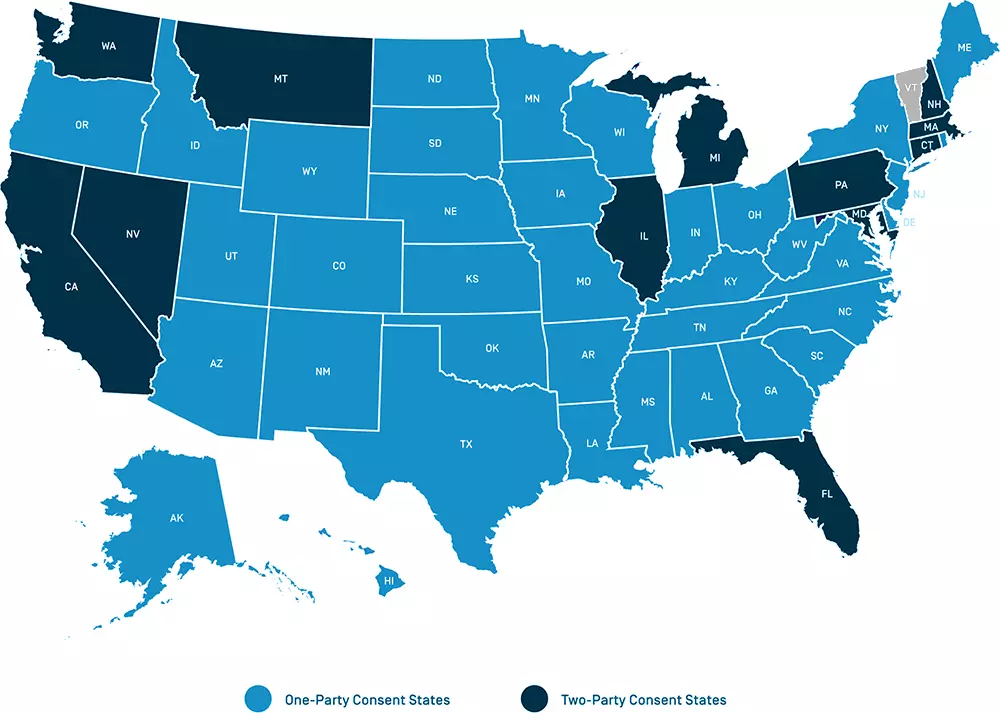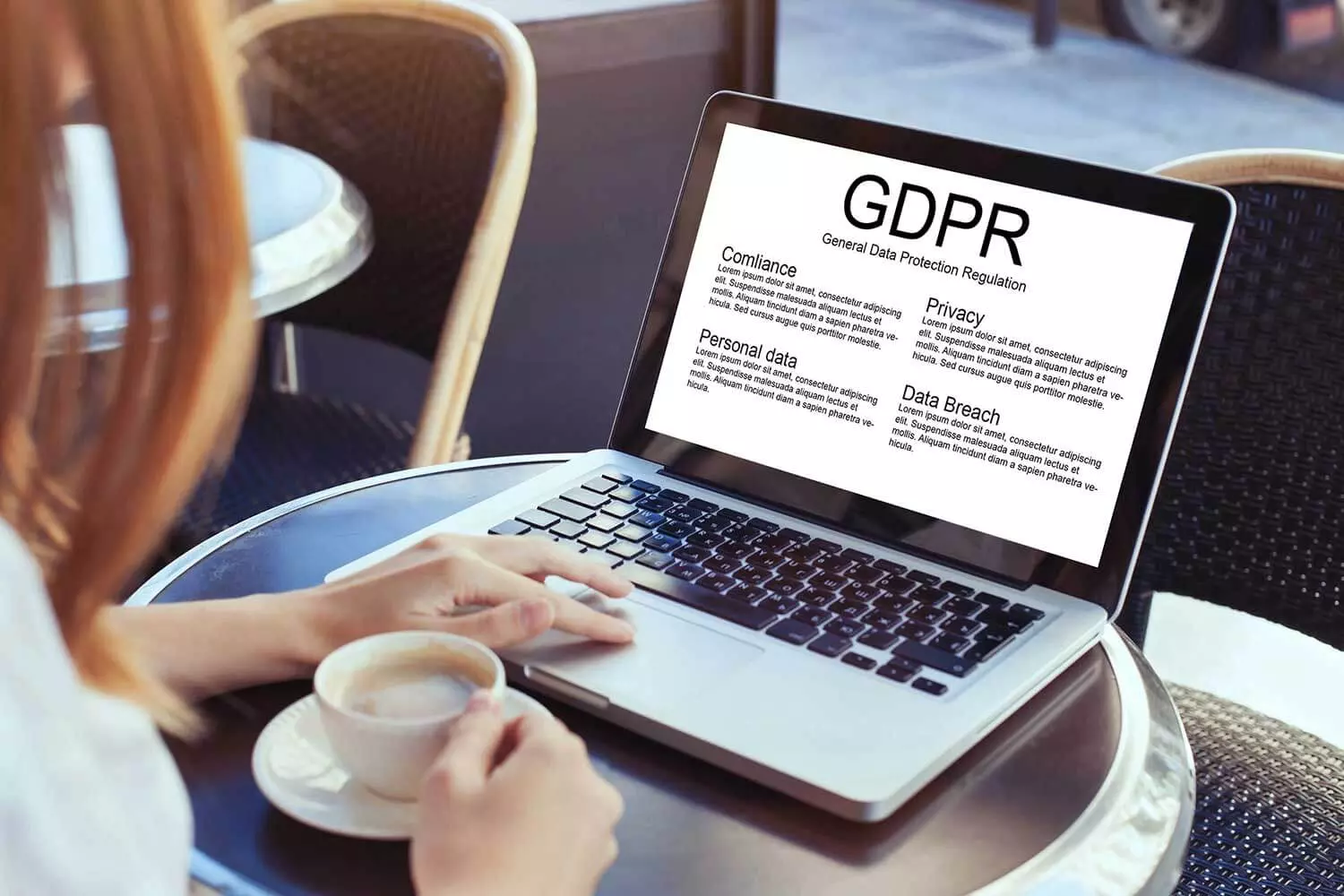The Truth Behind Call Recording and Consent for Sales and Marketing Professionals
call tracking, privacy, sales, call recording, gdpr,
When it comes to the legality of call recording, the laws and regulations change as you cross state lines and international borders. As a result, what might be legal where you live, could be illegal in another state or adjacent country.
Why does call recording and consent matter? Well, if you are a sales or marketing professional there are many benefits to recording calls.
Some of the benefits of recording calls include:
- Improved training for new and existing employees
- Improved marketing messaging with insights from real customers
- Offer insights into lead quality to marketing and growth teams
- Ability to audit call quality, objections and outcomes
Before you start recording calls, it’s important to have an understanding of call recording and consent laws in your state and country, and the laws in place in the locations of those you communicate with frequently, to make sure you always record legally.
Do you have to tell someone if you record a phone call?
When conferring with your legal advisors, one of the most important questions to ask, is whether you need consent from one or all parties on the call before you start recording. If you’re unsure what the law requires in your area, play it safe and always get consent from all parties involved.
Can you record a phone call without the other person knowing?
According to the Digital Media Law Project, “Regardless of whether state or federal law governs the situation, it is almost always illegal to record a phone call or private conversation to which you are not a party, if you do not have consent from at least one party, and could not naturally overhear.”

What about recording apps on mobile phones?
Recently, Google implemented their own regulations that limit the ability of apps in the play store to record calls on Android 10 and higher, regardless if the apps were recording one-side of the conversation, or both. This has affected countless apps, and the overall experience for users. There has been some chatter by a Google employee on their Google Issue Tracker, that Google may be reconsidering its stance on call recording. We, and many other companies can only wait and see.
Call recording in the United States
In the United States, states adopt either a one-party consent policy or a two-party consent policy. But what’s the difference?
Well, in a state that follows a one-party consent policy you’ll need consent from only one of the parties involved in a call, in order to record.
On the other side, we have a two-party consent policy, also known as ‘all-party’ consent, where both parties of the call must be informed and give their consent to the call being recorded.

Two-Party Consent States
The United States currently has twelve states that apply two-party call recording consent to their state laws. The states are; California, Connecticut, Florida, Illinois, Maryland, Massachusetts, Michigan, Montana, Nevada, New Hampshire, Pennsylvania, and Washington.
One-Party Consent States
The United States currently has 38 states (and the District of Columbia) that apply one-party call recording consent to their state laws. The states are; Alabama, Alaska, Arizona, Arkansas, Colorado, Delaware, District of Columbia, Georgia, Hawaii, Idaho, Indiana, Iowa, Kansas, Kentucky, Louisiana, Maine, Minnesota, Mississippi, Missouri, Nebraska, New Jersey, New Mexico, New York, North Carolina, North Dakota, Ohio, Oklahoma, Oregon, Rhode Island, South Carolina, South Dakota, Tennessee, Texas, Utah, Virginia, West Virginia, Wisconsin, Wyoming.
There is no state statute that regulates the recording of telephone conversations in Vermont.
Keep in mind: Consent requirement is based on the physical location of the prospect. It is not solely tied to the area code that their phone number is registered in.
Call recording consent can get even more complicated when one-party lives in a one-party consent state and the other lives in a two-party consent state. It can also happen that one-party lives in a one-party consent state, but other parties live in countries abroad where the laws are entirely different.
This is where the lines between state, federal and global call recording laws can get sticky. For this reason, it’s usually best practice to obtain consent from all parties on the call – just to be safe.
Call recording in the United Kingdom
A quick trip across the pond will take you into a space where there are technically no regulations that prohibit individuals from recording phone calls and conversations, but there are various laws in place that regulate how companies do and what they do with those recordings once they have them. These laws include but are not limited to:
- Telecommunications (Lawful Business Practice) (Interception of Communications) Regulations 2000 (SI 2000/2699) (Lawful Business Regulations).
- Data Protection Act 1998 (DPA).
Under the Telecommunications Regulations 2000, companies are only allowed to record voice calls without consent if the recording is used for one of the following reasons:
- To allow the business to comply with other regulatory procedures
- To provide evidence of a business transaction
- To act as a means of verification that the person being monitored is performing his or her work to standards
- To protect national security
- To prevent or detect criminal activity
- To secure the efficient operation of the telecommunication system
- To allow the business to detect unauthorized use of the telecommunication system
The DPA defines proper handling of personal data rules, which requires any recordings of telephone calls to be stored securely with appropriate steps taken to avoid breaches. These rules focus on balancing the interests of individuals and businesses.
This is not the case with the General Data Protection Regulation (GDPR) which has replaced the Data Protection Directive 95/46/EC and was designed to harmonize data privacy laws across Europe. This regulation aims to protect EU citizen’s data and privacy in an “increasingly data-driven world that is vastly different from the time in which the 1995 directive was established”.
Ultimately, GDPR directly affects the ability of organizations to make recordings of personal conversations, even those made on business devices.

Considerations for sales and marketing teams
Before you flip the switch on call recordings, here are a few considerations to take into account:
- Are you and your team well-versed in the laws and practices of the states and countries you will be calling or where your leads will be calling from?
- Have you and your team been formally trained on how to ask for consent and what to do if a party does not consent?
- Do you and your team have the right tools to record calls in a beneficial and impactful way?
If you have other ideas that sales and marketing teams should consider, drop them in the comments below.
Before initiating your marketing program in a new country, please make sure to consult your legal team and have a complete understanding of regulations in that country before recording.
Interested in learning more about call recording and consent?
Here are a few resources for you to check out:
For more information on Australia’s calling laws, check out the surveillance and monitoring guidelines from the Office of the Australian Information Commissioner.
For more details on Canada’s approach, you can take a look at the Privacy Commissioner’s Guidelines for Recording Customer Calls.
For more details about Ireland’s call recording laws, check out this link here.
For more details about each of the laws in the United Kingdom, read here.
Again, it’s typically best to get consent from all parties no matter where in the world you might be. This will protect you and all parties involved.
Thanks for reading! If you’re looking for call recording, transcription and other advanced calling services, reach out to us below and our team will get back to you quickly.
Questions?We’d love to hear from you. Give us a call toll-free from within the US at +1 888 369 9519 or send us an email at hello@iovox.com.
From outside the US please reach us at one of these numbers:
Las Vegas, USA +1 702 425 7505
London, UK +44 (0)20 7099 1070
Sydney, Australia +61 (0)2 8520 3530
Paris, France +33 (0)1 84 88 46 40